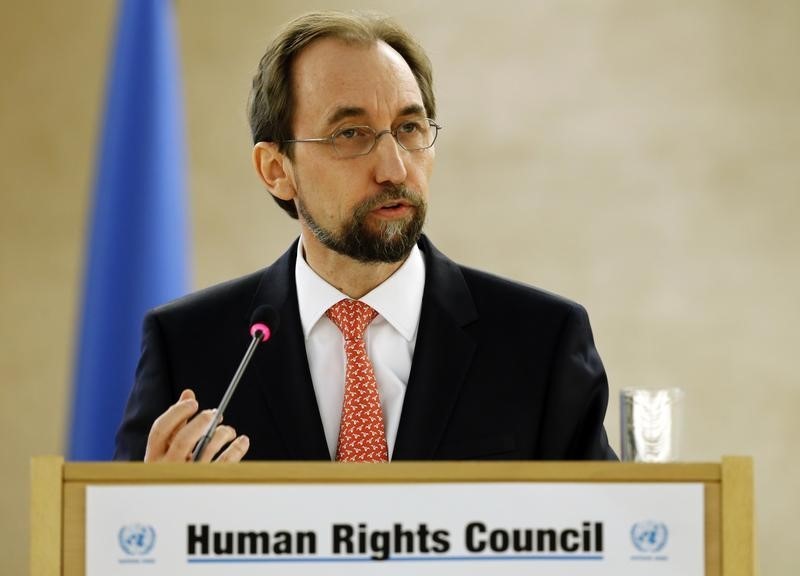KINSHASA (Reuters) - The U.N. High Commissioner for Human Rights called on Thursday for the release of people he considers political prisoners in Democratic Republic of Congo as the government cracks down on dissent ahead of a contentious electoral period.
Zeid Ra'ad Al Hussein said in an interview in the capital Kinshasa he would submit to the government in the coming days a list of people he believes should be released immediately.
Political tensions are high in Congo before a scheduled November presidential election. President Joseph Kabila, in power since 2001, is required by the constitution to step down this year but the government says logistical and budgetary constraints make it unrealistic to hold the election on time.
"Until we are convinced that there are merits for their detention, we believe that they need to be released promptly," Zeid said.
The government spokesman and justice minister were not immediately available for comment but have denied in the past that there are any political prisoners in Congo.
Zeid declined to say how many people or what names would be on the list but added that he would consider making the names public if the government did not make swift progress.
In a report last December, the U.N. human rights office in Congo said dozens of political opposition leaders, pro-democracy activists and human rights advocates have been arbitarily detained for political reasons.
Among the names mentioned in the report were Fred Bauma, a young activist arrested in March 2015 at a workshop to encourage youth political participation, on charges of participating in an insurrection. It also includes opposition leader Jean-Claude Muyambo, who was arrested in January 2015 for alleged real estate fraud.
Both are still in prison awaiting court judgments.
Opponents of Kabila accuse him of purposely blocking the election in order to cling to power, but Kabila has repeatedly said delays are owing to financial and logistical challenges.
U.N. experts have warned delays could lead to widespread instability in a country where millions died in regional wars from 1996-2003.

Zeid met senior officials on his four-day visit in Congo, including the prime minister, justice minister and intelligence chief, though he was still waiting to see if he would be received by Kabila before departing the country on Thursday evening.